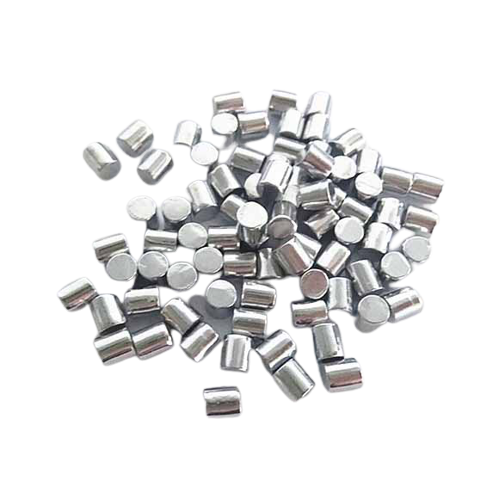
Aluminum (Al) is a chemical element that is often used as a source material in Molecular Beam Epitaxy (MBE) systems for the growth of thin films. In the MBE process, a beam of aluminum atoms is directed onto a substrate, where it deposits a thin layer of material. Aluminum is a good electrical conductor and is widely used in electronic and optoelectronic devices, such as LEDs and lasers. It is also used in the production of solar cells and other photovoltaic devices. In the MBE process, aluminum source materials are typically vaporized or sublimated to create a beam of atoms that is directed onto the substrate. The purity of the aluminum source material is important because impurities can affect the quality and performance of the thin films produced by MBE. High purity aluminum is typically 99.999% pure or higher.

The highest purity aluminum that is commercially available is typically 99.9999% pure, or 6N (six nines) pure. This level of purity is achieved through a combination of refining processes and careful handling and storage to minimize contamination. Higher purity aluminum is often used in applications where the presence of impurities could significantly impact the performance of the material, such as in the production of electronic and optoelectronic devices, solar cells, and other photovoltaic devices. The purity of aluminum can be determined through a variety of methods, including inductively coupled plasma mass spectrometry (ICP-MS), inductively coupled plasma atomic emission spectrometry (ICP-AES), and thermal ionization mass spectrometry (TIMS).
